25 Tips for Buying a Car at Auction

An auto auction can be an inexpensive way to get a lightly used car or a nerve-wracking, resource-depleting means of buying the rare vehicle of your dreams. In either case, it's never dull and it strips away some of the pressure, formality, and bureaucracy of the dealer-based buying process. It also offers slightly less protection than more traditional car buying, so whether you're attending an auction run by government, law-enforcement, or for collectors, you have to beware getting shortchanged when the gavel falls. The folks at auto ratings site Kelley Blue Book, used-vehicle analysis site CarGurus, auto insurance and valuation site Hagerty, and auto auction house Barrett-Jackson have a few recommendations for those looking to make a bid.
Related: Cars That Cost More Used Than New
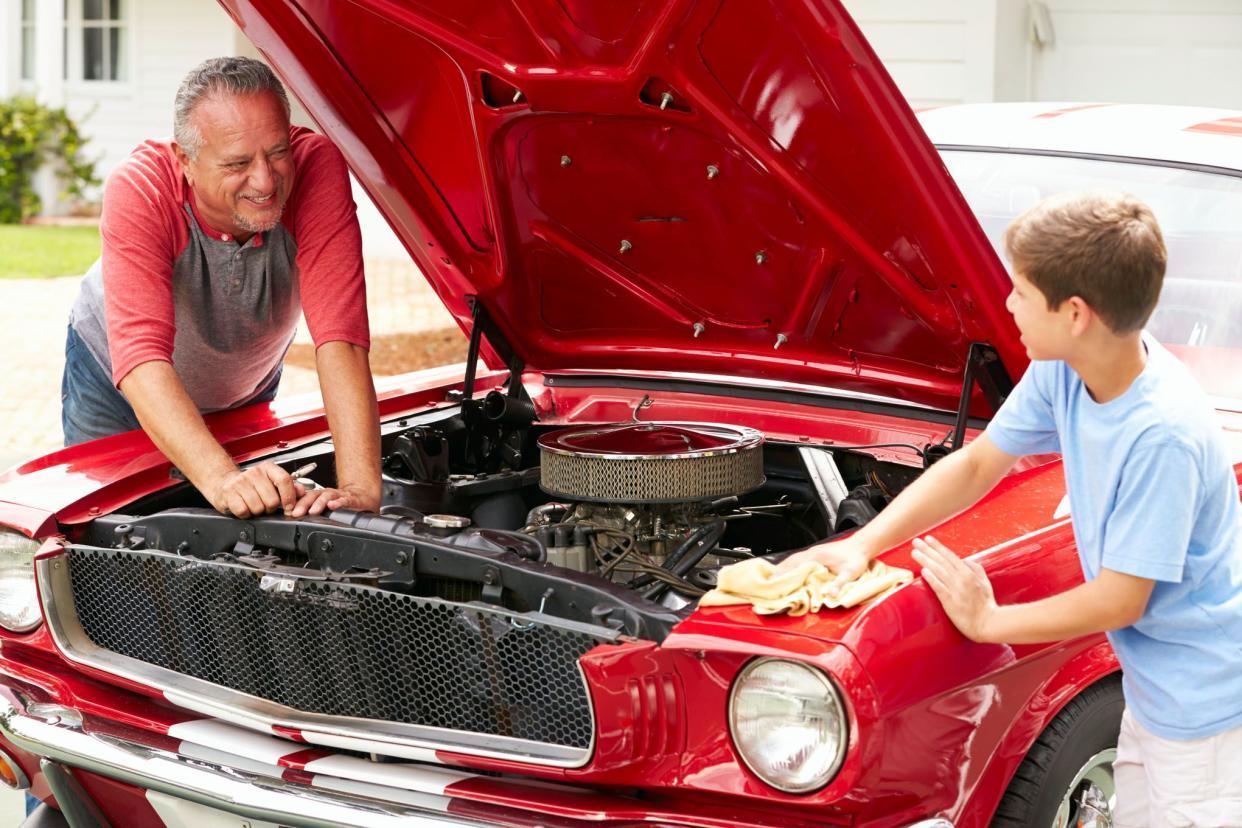
Figure out what you want, what you can afford, and what you're going to use the car for. Then get the best example you can afford. "A lot of Barrett-Jackson buyers are looking to buy something they can work on as a family project — perhaps a father and his kids — while others want a collectible restored to show or a vehicle that is going to be driven," says Matt Ferguson, spokesman for the Barrett-Jackson auction house. Even if you just want a cheap used vehicle that's reliable and efficient, figure that out before you enter an auction site.
Related: 14 Questions to Ask Before Buying a Used Car

Pick one make and model and learn all you can about it, Barrett-Jackson suggests. The more educated you are about a vehicle, the more likely it is you'll be content with buying it. If something else catches your eye, take the same approach and determine if it's worth all the research.
Related: The Best Cars to Buy Used Instead of New

The internet is such a powerful tool, and the resources are unlimited. Given how complicated the average car has become, Matt DeLorenzo, senior managing editor for Kelley Blue Book, advises checking with the National Highway Traffic Safety Administration to see if there are open recalls on your vehicle. Then check used-car sites to see what drivers think of reliability and pricing.

Whether you go to Carfax, AutoCheck, or the National Motor Vehicle Title Information System, it's worth seeing what the car you plan to bid on has been up to. A vehicle history report won't tell you everything, but it'll give you some idea of just how much wear is on the vehicle. "Those are important because they'll flag the big items: Has the vehicle been in an accident? What sort of maintenance history has been recorded? Are there any open recalls or recall service?" DeLorenzo says.

Don't wait until an hour before a car goes on the block to start researching. Ideally, Barrett-Jackson suggests you'll have done all your research well before the date of the auction and will walk in with a clear plan of action.

Without a dealer's license, you're only going to have access to public auctions. While there are high-quality vintage and collectors' auctions, many public auctions consist of lower-quality vehicles that are older and have higher mileage. "While buying a car at auction can offer cost savings, consumers should go in with eyes wide open," says George Augustaitis, CarGurus' director of industry analytics. DeLorenzo, at Kelley Blue Book, agrees and says that potential bidders should go to sites such as Yelp to see if customers have complaints about a specific auction.

Police auctions and public auctions offer better deals, DeLorenzo says, because there's no "blue sky" to them. You know why it's being marked down, and you know the vehicles aren't highly coveted. At a collector auction, however, they know you're going after the car your dad had or the vehicle you've wanted to own all your life. "When you get emotion like that baked into the process, you get people paying more for the car than it's worth," DeLorenzo says.

Augustaitis notes that public auctions are a "caveat emptor" setting where the return and refund policies can vary by location. Auction attendees should become aware of the refund and return policies as soon as possible; most public auction houses provide less that 24 hours to report an issue.

Make sure there are no discoloration spots around the car, which could signal the car was in an accident, Augustaitis suggests. You can also use Vehicle Identification Number lookups (CarGurus has one) to see relevant vehicle history information. Inspect the vehicle for signs of water damage too — including salt residue on the carpet and door panels.
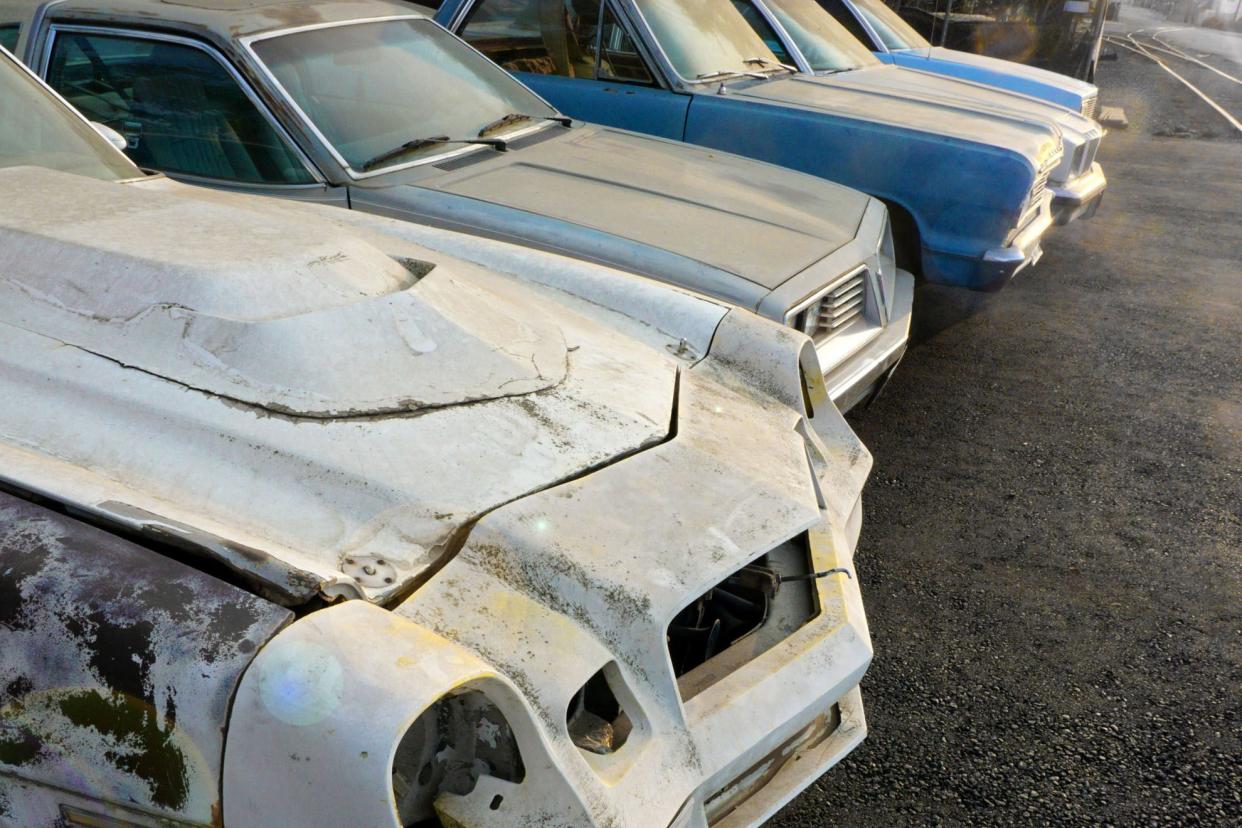
Chances are, your auction find won't come with a warranty. A certified pre-owned vehicle might have one, DeLorenzo notes, but cars sold at auction are likely already years old or have considerable mileage. In many cases, they're deemed lemon, junk, or salvage, which means you're on your own for maintenance once you roll it off the auction site.
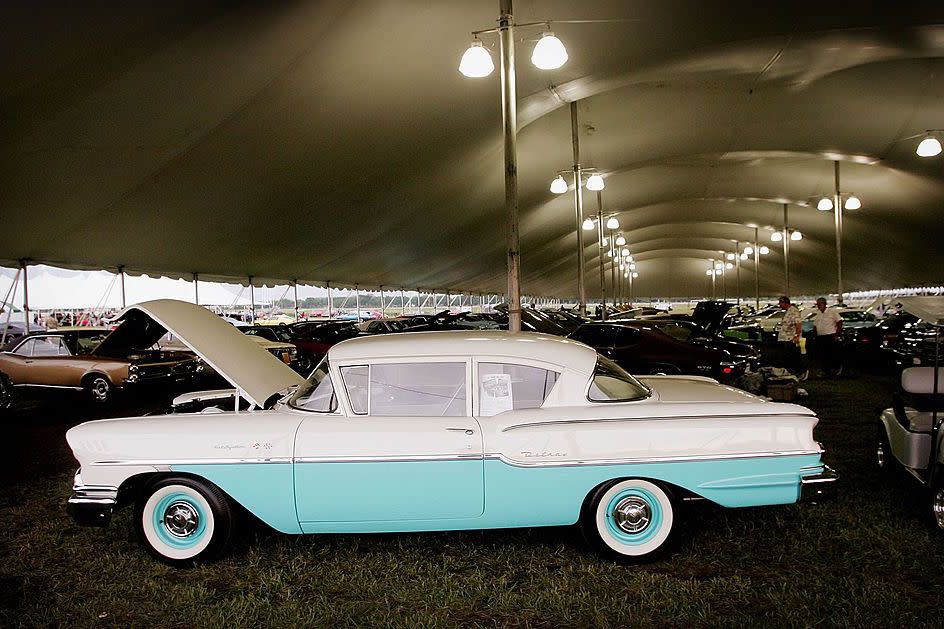
Make sure your auction contract states clearly whether the title indication light was red, green, or yellow; if you win a car with a green-light title, but it has a red light title problem later on, you may have at least some recourse. Also be sure the contract states how many days before you get the title. If it takes longer, you can try to get your money back from the owner, who'd be in breach of contract.

If you're going into a high-end auto auction, it pays to have as much backup as possible. "Auctions are shark-infested waters," Hagerty marketplace director Colin Comer told writer Cameron Neveau. A consultant can steer newer bidders around pitfalls and save a buyer some money. Consultants can help you find the right auction house and timing, and help distinguish an actual barn find from someone's dusty, neglected beater.
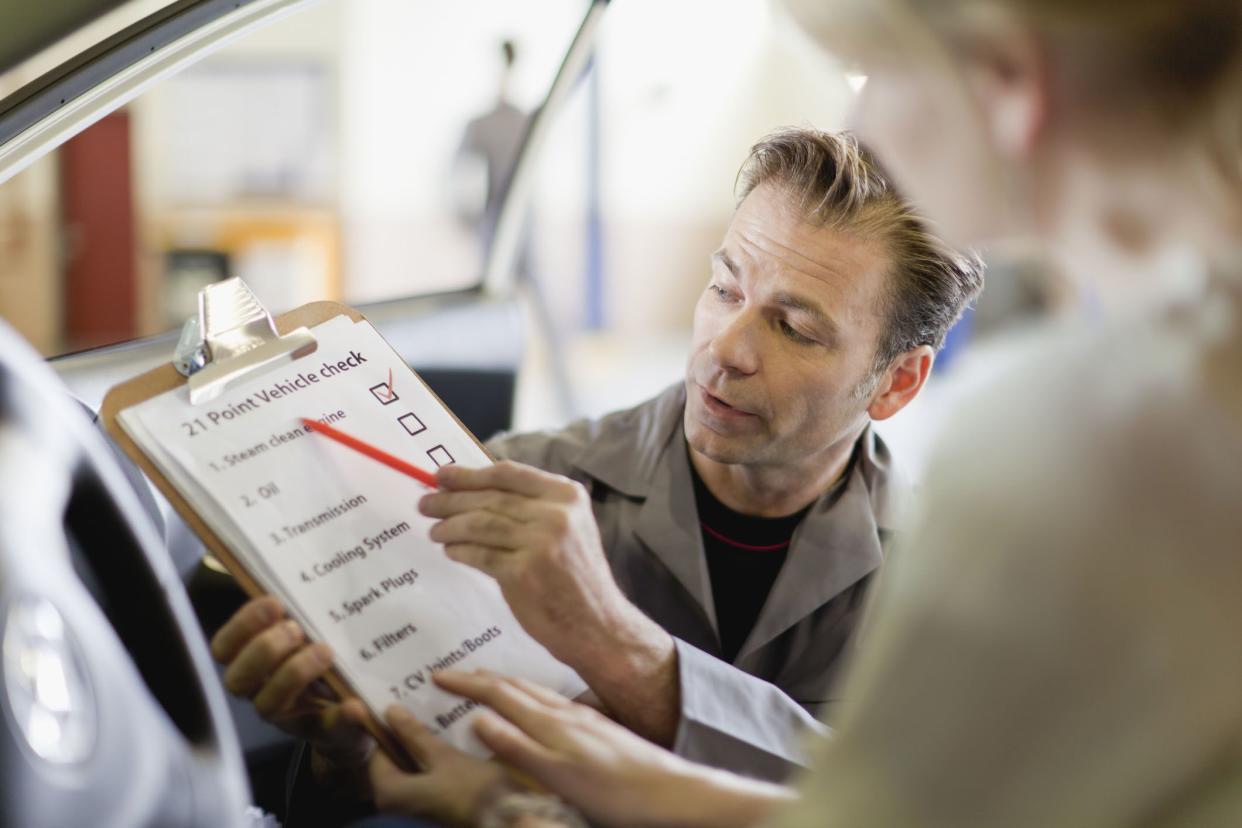
Search the car's serial number on the internet to make sure everything matches. Get a mechanic or other expert to inspect the car. Ask the sellers why they're parting with the car. Considering that Hagerty's experts once found two different serial numbers on the same car, it's worth checking everything twice.
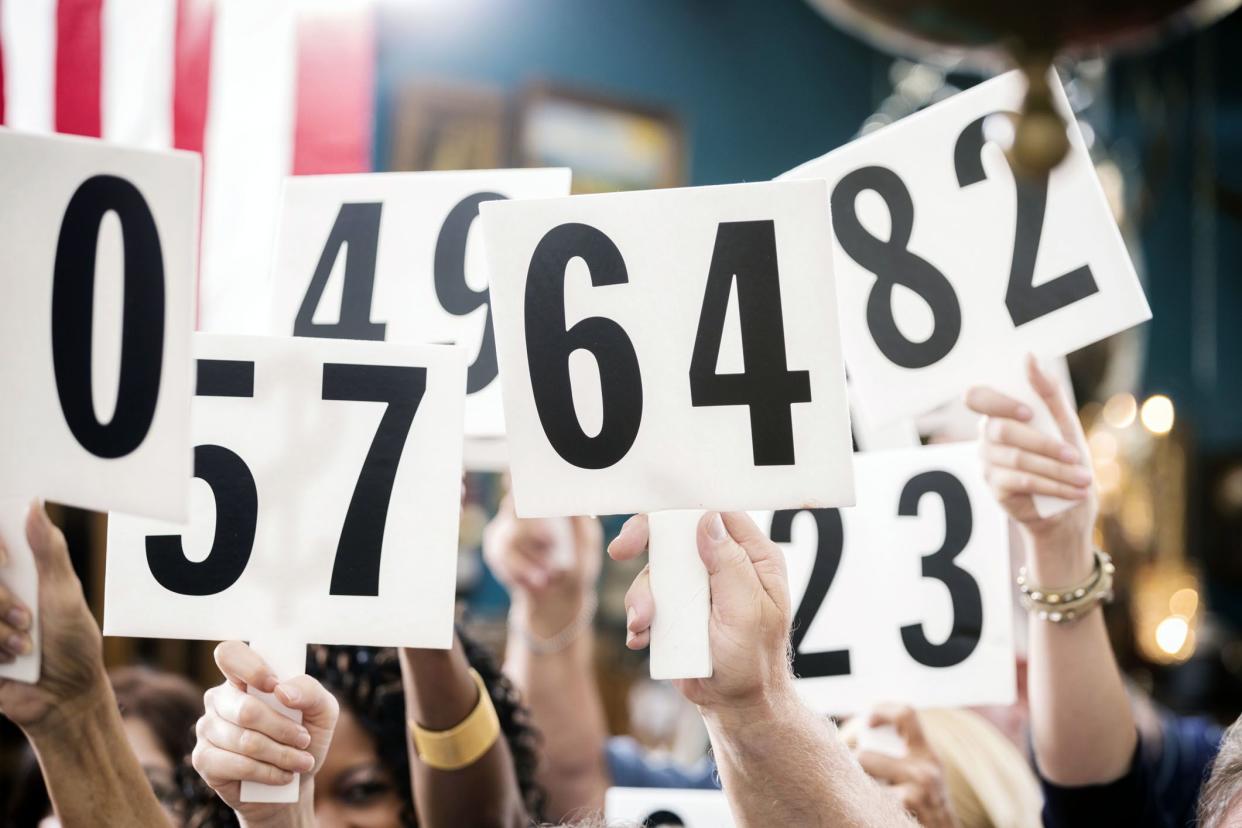
"Deals are like trains, there's one coming the next hour," Hagerty Price Guide publisher Dave Kinney told Neveau. First-time auction attendees should observe the landscape of the auction, meet the principals, and get a feel for how the auction works. Don't just jump at the first good-looking car.

Talk to the seller, who'll have the most information about the vehicle. Granted, the seller wants the best price they can get, so don't make that the only conversation you have. Barrett-Jackson suggests asking other knowledgeable people (such as mechanics, used car dealers, collectors) about the vehicle type in advance just so you have points of comparison when talking to the seller.

The most important thing is to figure out a price range for a particular vehicle before going to auction. "Sites like ours are good for figuring out what various vehicles are valued at, and you can set your own comfort level for what you're willing to pay and set that as your ceiling," DeLorenzo says. If you can find a used car for that ceiling price or lower, DeLorenzo says you may be better served by skipping the auction.

Auctions are fast-paced and exciting for a reason: They're built to get the adrenaline flowing and give your instincts a louder voice than your brain. Especially at collector auctions, it's tough to cut yourself off once the dream car comes up. "You need discipline," DeLorenzo says. "You have to say, 'This is what this car is worth to me, I'm not going to pay any more than this,' and stick to that plan." Hagerty's experts suggest that after you see what a vehicle should cost, set the price you're comfortable with, and (if necessary) write it "on your hand with a big ol' Sharpie as a reminder."
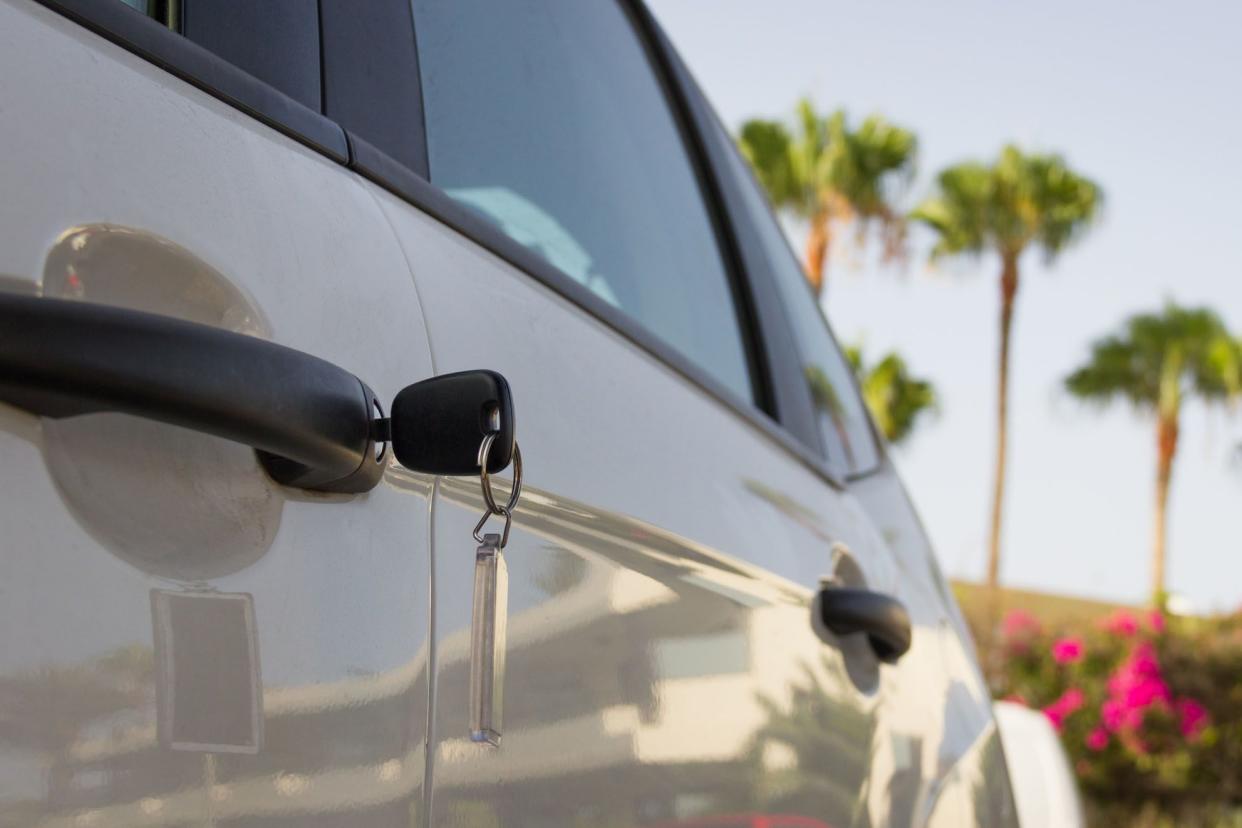
You're going to an auction to get as good a deal as possible, so try to have some reasonable expectations once you arrive. That includes planning to walk away if you're getting outbid or if a rising price doesn't match the car's condition. "That's absolutely the key to getting a good deal: Being ready and able to walk away," DeLorenzo says. "If you don't feel it's what you want, you're ultimately in control."

"Auctions are a lot like marriages," Neveau writes. "What goes unsaid is at least as important as what is said." The auctioneer's demeanor and voice provide clues, while cadence and hand signals show when things are slowing down or heating up. Look for an open hand for real bids or a closed hand for a fake bid used to hit the seller's reserve price.

Yes, you can actually test drive some of the cars at auction, and that drive can influence a bid even if everything is in good working order. "Everyone's interpretation of perfect is different," Autosport Designs owner Tom Papadopoulos told Hagerty. "Most owners will let you take a test drive. Take them up on it." Hagerty's Comer recently drove a Lamborghini Miura for a client and, while it looked flawless from the outside, one drive showed that the clutch pedal fell straight to the floor — a tough problem for an already costly vehicle.

"Auction catalog copywriters are not there to talk you out of buying a car," Comer says. Auction catalogs are designed to minimize a car's flaws and make them seem as rare as possible. Oh, and your winning bid isn't the price you'll pay. There are still taxes and documentation fees to consider, and auction houses can charge commission fees up to 12%. Budget appropriately.

"The guy who throws the first bid is the guy who wants the car the most," Comer says. Don't be that person. Let others bid ahead of you, and bid closer to the end … Don't spend an entire auction telegraphing to the room how much you want to pay for your car."

High-end collector auctions want the room nice and liquored up before the bidding starts. As a buyer, that's your cue to stick to water.

Hagerty suggests going into an auction with a list of cars you want, but vetting all of them. Once you've done your test drives, owner interviews, and other work, narrow that list down and remove vehicles that don't meet your criteria. You should be subtracting, not adding, as you get closer to bidding time.
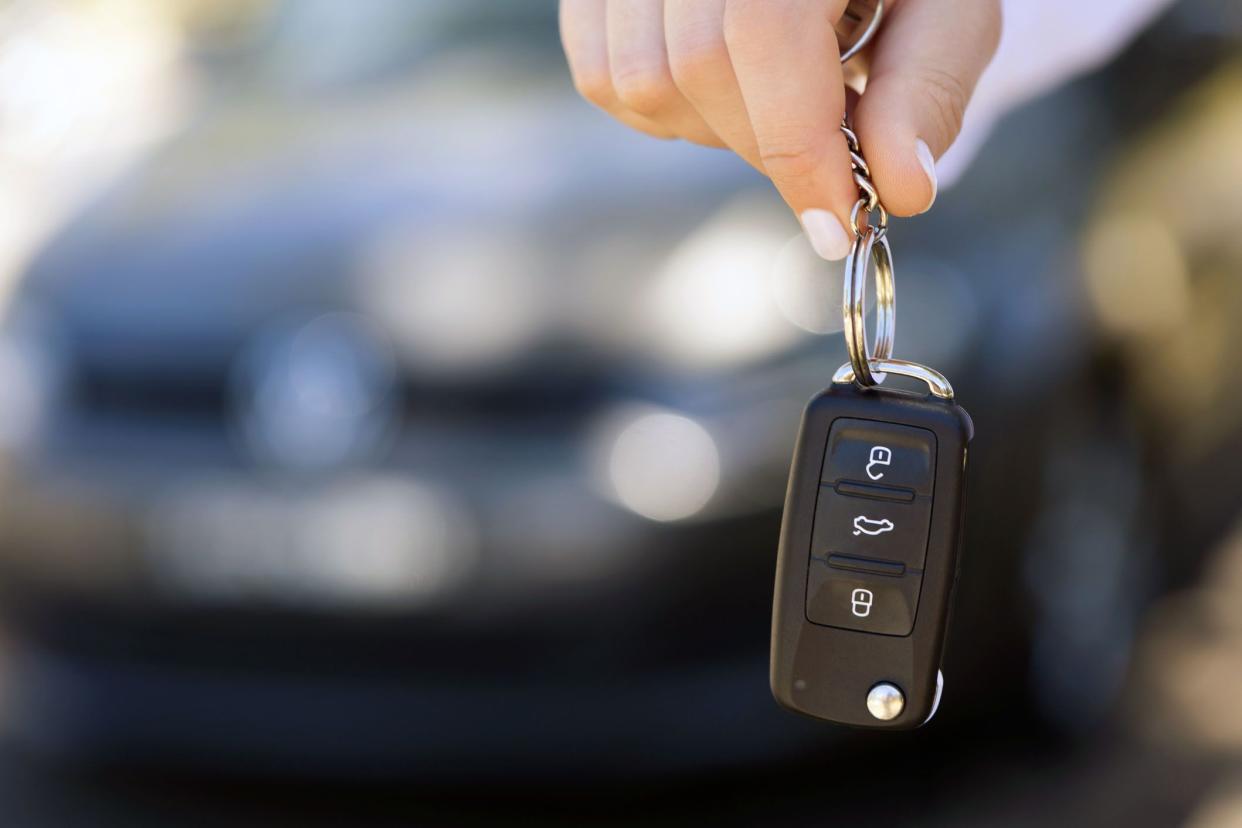
Once you've won a bid and bought a car, there's typically no going back. Unless a seller committed fraud and a car outright doesn't work, that car is yours. If you have doubts at bidding time, Papadopoulos suggests snapping a photo of the car, walking away from the bidding, and hanging the photo on your wall when you get home.
Related: 32 Lies Your Mechanic Has Told You
